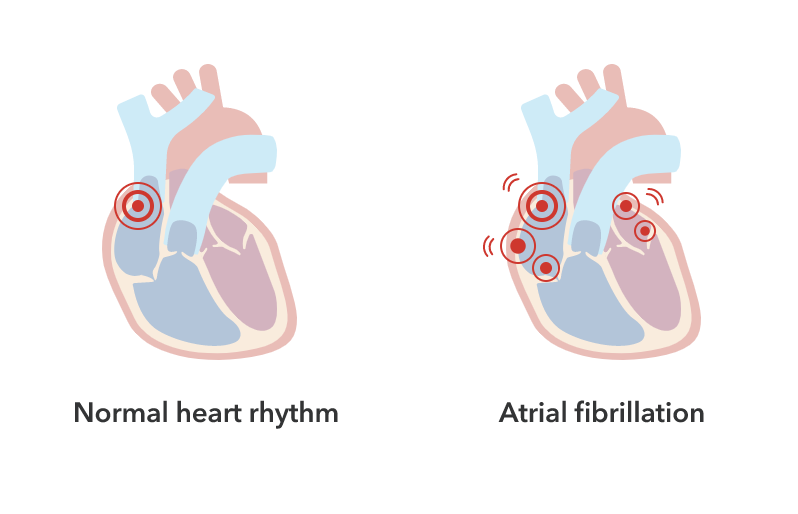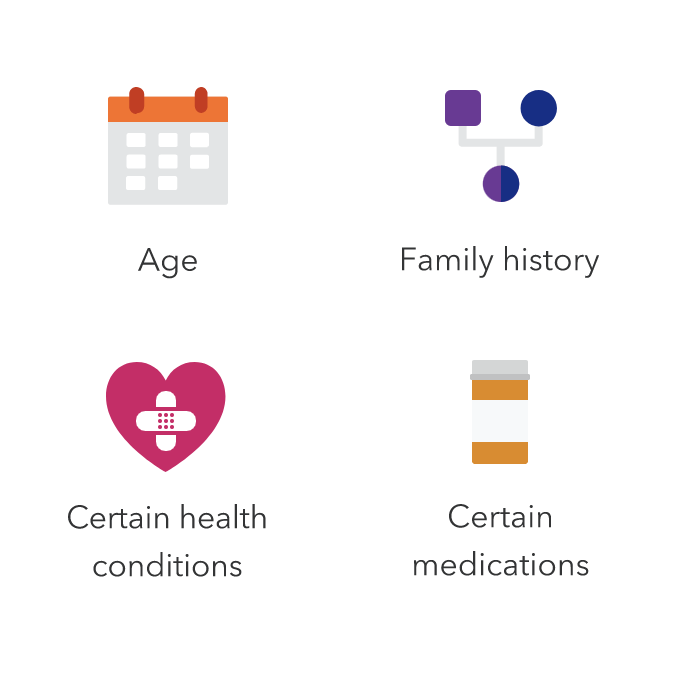Is Atrial Fibrillation Genetic?Explore Atrial Fibrillation and what your DNA can tell you
What is atrial fibrillation?
Atrial fibrillation, sometimes called AFib or AF, is a common type of arrhythmia, or irregular heartbeat. It happens when the two upper chambers of the heart (called the atria) beat irregularly.
Normally, the atria pump blood into the two lower chambers of the heart (the ventricles) at a steady beat and the ventricles pump blood to the rest of the body. But when the atria beat too fast and irregularly, the atria and ventricles become uncoordinated. When the heart doesn’t beat regularly and pump blood properly, blood can pool in the atria. This increases the risk of blood clots, which can lead to a stroke. Atrial fibrillation may also weaken the heart muscles, which can lead to heart failure.

Is atrial fibrillation genetic?
Genetics can play a role in atrial fibrillation. A family history of AFib or a related arrhythmia called atrial flutter can increase the likelihood of developing the condition.
Find Out if Your Genetics Might Increase Your Likelihood for Developing Atrial Fibrillation.
Other factors that may cause an increased likelihood of atrial fibrillation
Other than genetics, there are other factors that can impact your chances of developing atrial fibrillation.
Lifestyle factors can play a role: maintaining a healthy weight, limiting alcohol consumption, and not smoking can help lower the chances of developing atrial fibrillation. Another factor is age, as the condition becomes more common as people get older. Certain medications, as well as some health conditions (like high blood pressure and overactive thyroid) can also impact your chances of developing atrial fibrillation.

Did you know?
It’s estimated that around 6 million Americans have atrial fibrillation.
Find out if your genetics might increase your likelihood of developing atrial fibrillation
23andMe takes into account your genetics, along with ethnicity and sex, to estimate the likelihood of developing atrial fibrillation. You can get the Atrial Fibrillation report as part of the 23andMe+ Premium membership. 23andMe+ Premium includes everything in our Health + Ancestry Service plus new premium reports and features throughout the year.

23andMe+ Premium
Please note:
- The Atrial Fibrillation report does not diagnose atrial fibrillation and should not be used to make medical decisions.
- The report was developed by 23andMe scientists using data and insights gathered from thousands of customers who consent to participate in our research. Reports based on 23andMe research provide an estimate of your likelihood of developing a condition based on your genetics and other factors. This report does not account for lifestyle or family history.
- The report does not account for every possible genetic variant that could affect your likelihood of developing atrial fibrillation.
References
“Atrial Fibrillation.” Am Fam Physician. 2016 Sep 15;94(6):online.